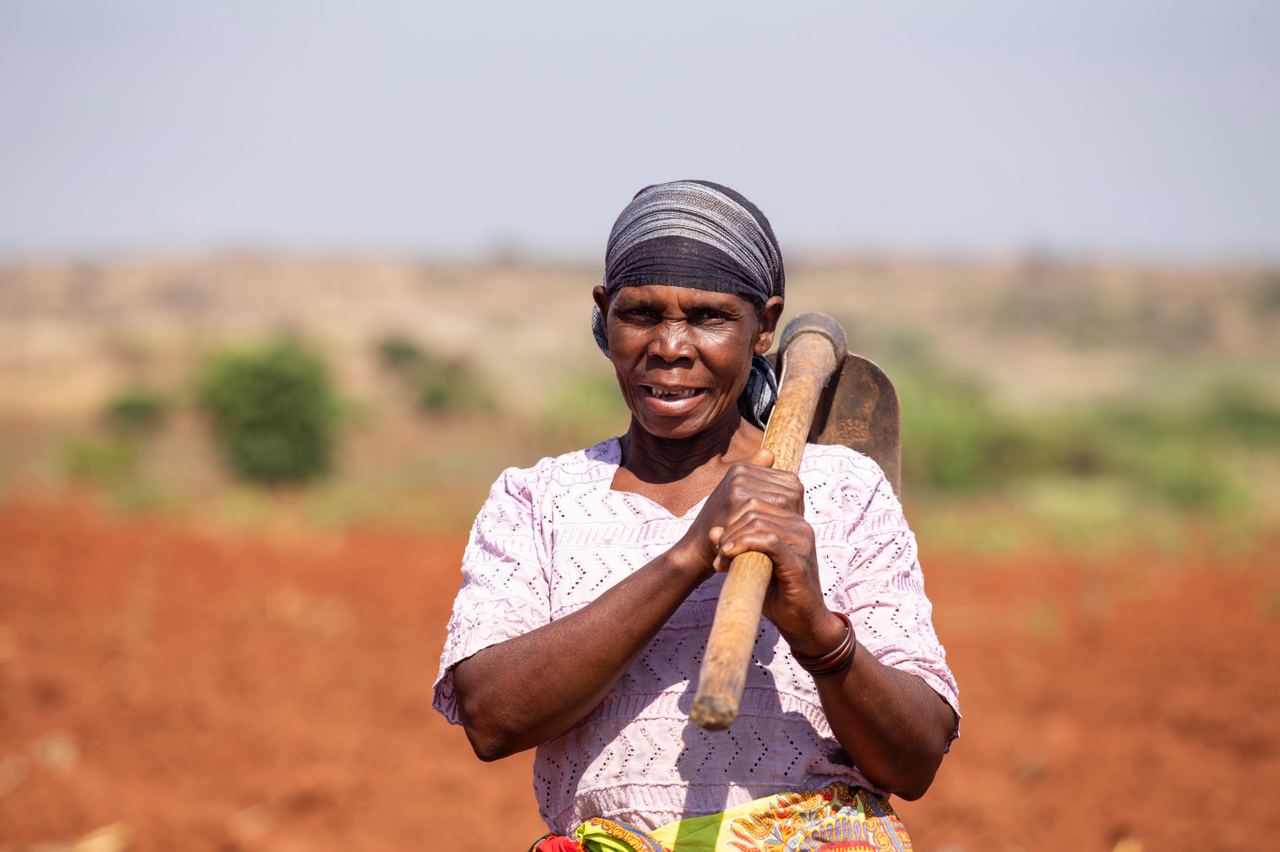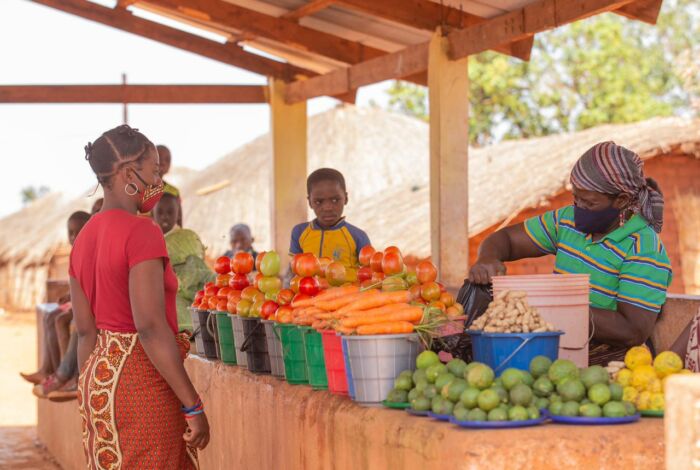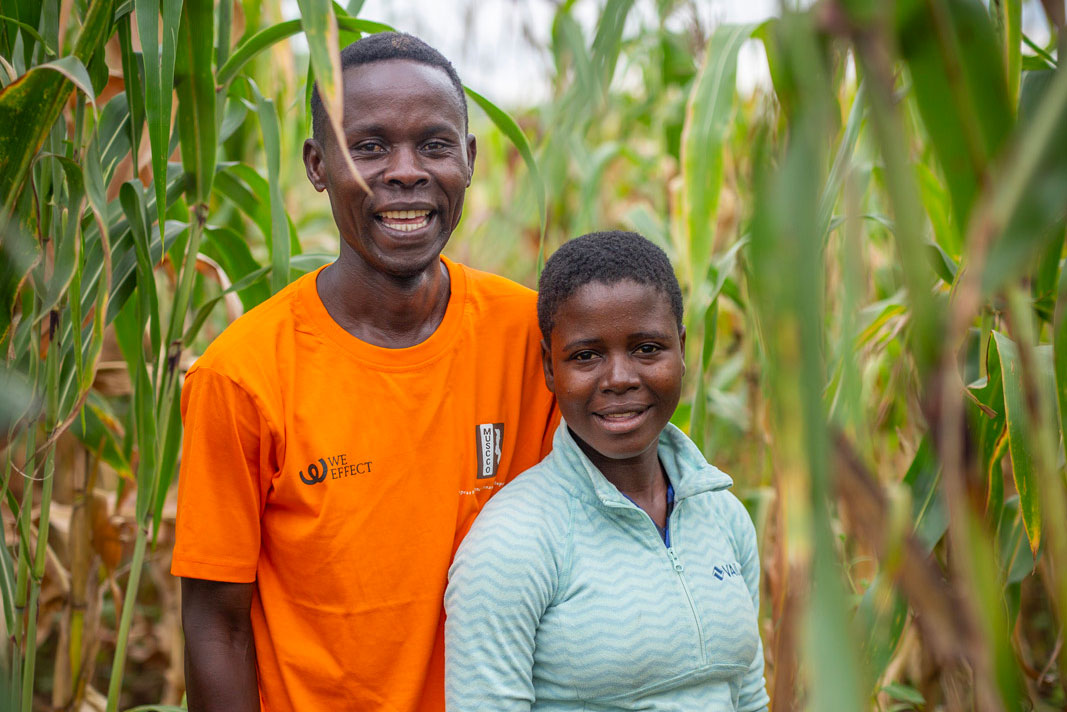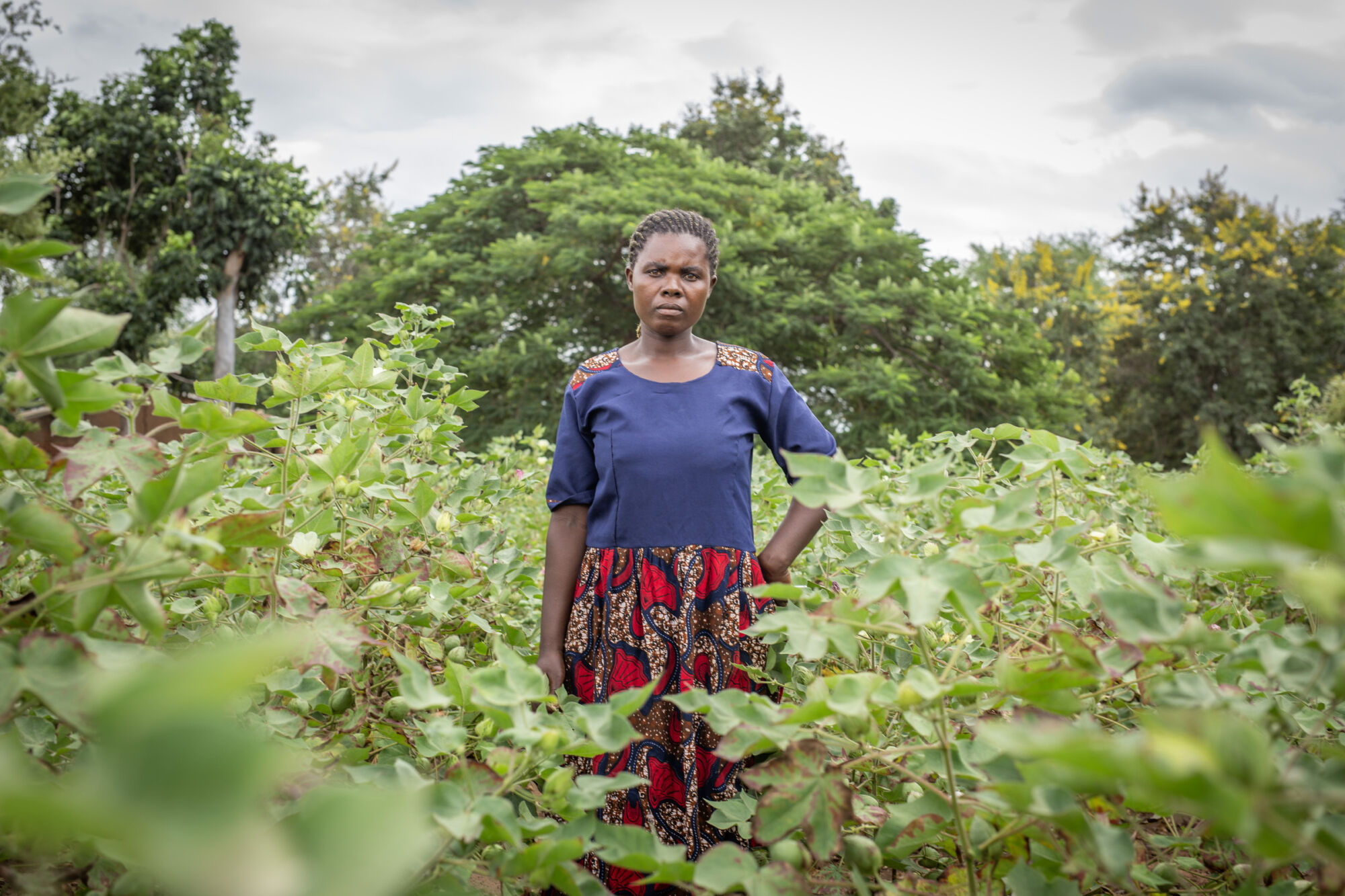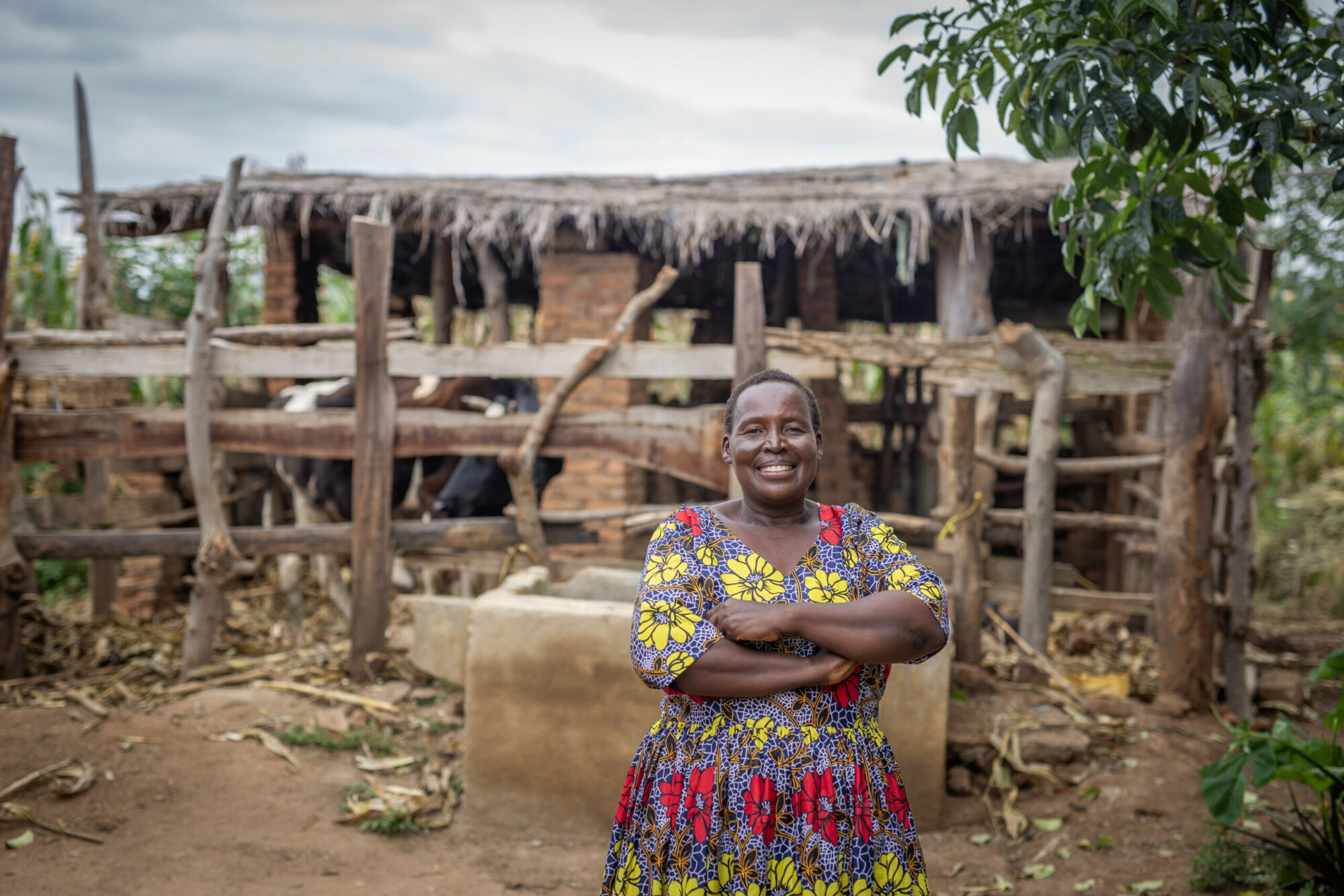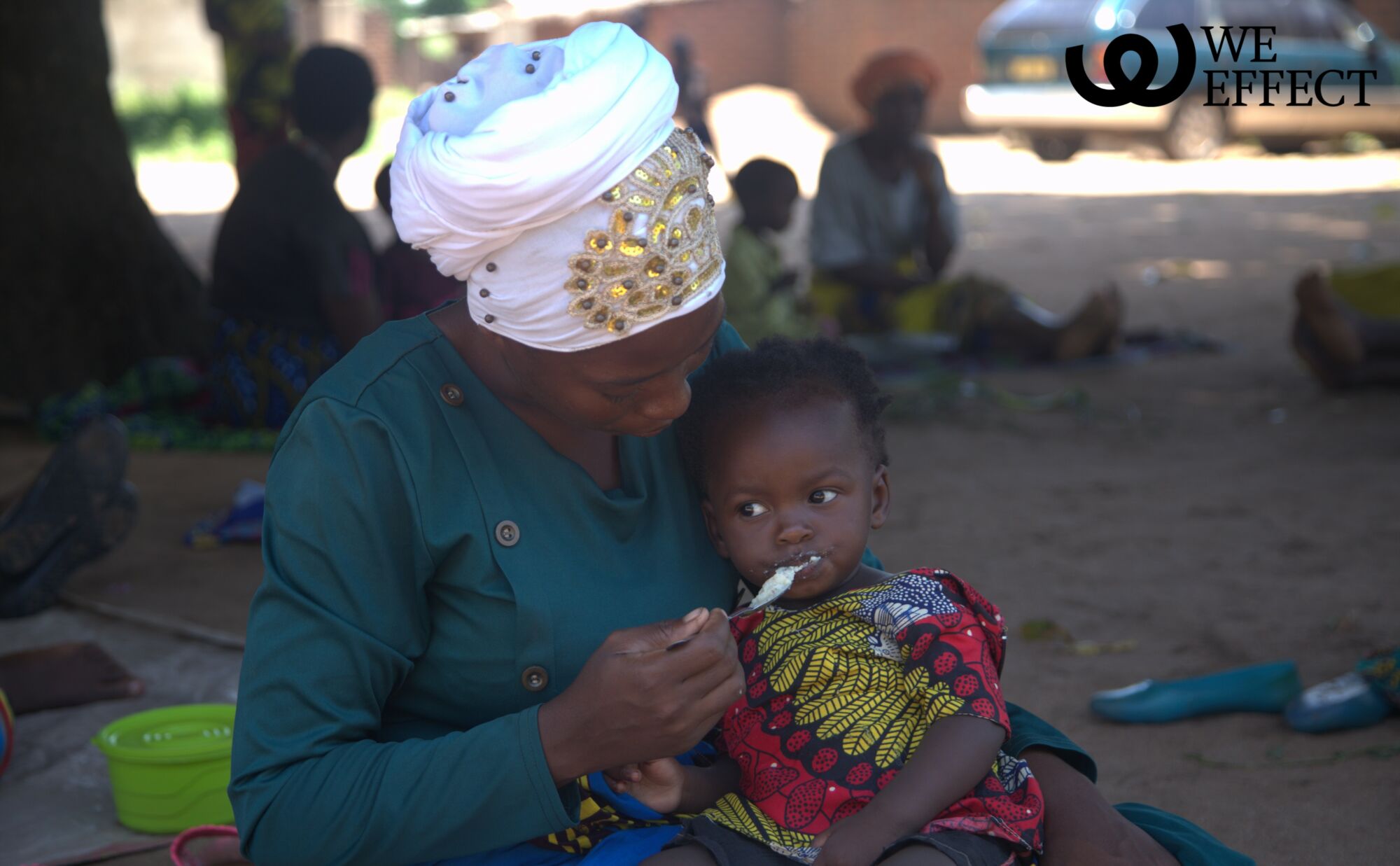Since the Covid-19 pandemic broke out, 56-year-old Jamia Salimo and her family have taken care to wear face coverings and stay two furrows apart when they’re out working the family’s fields. Their farm is in the village of Lussanhando in the Niassa Province of northern Mozambique, and they are among the more than 70 per cent of Mozambicans who primarily make their living from agriculture and self-sufficiency.
We live on the money I make from the farm and have access to healthy food from our own fields.
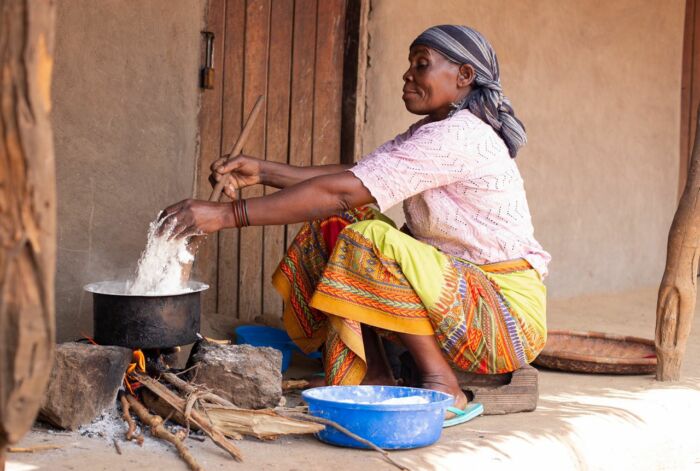
Porridge with vegetables from the garden
She loosens the rusty-red soil with a simple hoe made of wood and metal. On the fields she grows maize, beans, potatoes and sweet potatoes, and in the garden around the family house of mud and straw she grows vegetables like cabbage, lettuce, carrots and tomatoes. Jamia, her husband and seven children eat cornmeal porridge for breakfast. For lunch they have a thicker version of the same porridge, and for dinner they have rice. With these carbohydrates they eat vegetables from the garden.

“The main things we have to buy are soap, salt and cooking oil. We always have these three things at home, as cooking oil adds vitamins and everyone knows that food without salt doesn’t taste of anything. We need the soap to stay clean and look presentable,” says Jamia.
Nine of ten Mozambicans cannot afford to eat nutritious food
Mozambicans who live in rural areas spend just over half their income on food, on average. The very poorest, of whom Jamia Salimo is one, spend almost two-thirds of their income on food. Even so, the money is not enough for healthy, nutritious food. Nine out of ten Mozambicans cannot afford to eat sufficient amounts of nutritious food to stay healthy. Nor is there much money left over for other things, such as investing in the farm, the home or
other income streams. Access to conventional banking services is virtually non-existent, so if the food or money runs out, the only hope is help from family and friends.
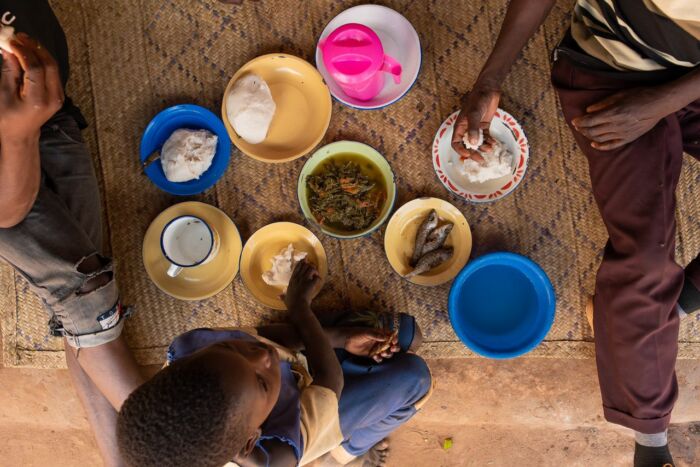
Prices have gone up in the pandemic
“Prices in the shops have gone up in recent months, and I’ve spent about 1,000 meticais [about €12] on shopping a month,” says Jamia. Since the coronavirus outbreak, the family takes care to wash their hands often. No one in the family has yet caught Covid-19, but it is mentally stressful to think about what would happen if someone did get it.
“During the pandemic, we’ve gone out onto the fields as usual in the mornings to work. Then we come home for lunch, and then we stay at home as we’re not supposed to
mix with others,” Jamia explains.
“Every day I’m out on the field I worry about my family’s health, but I never stop working,” she adds.
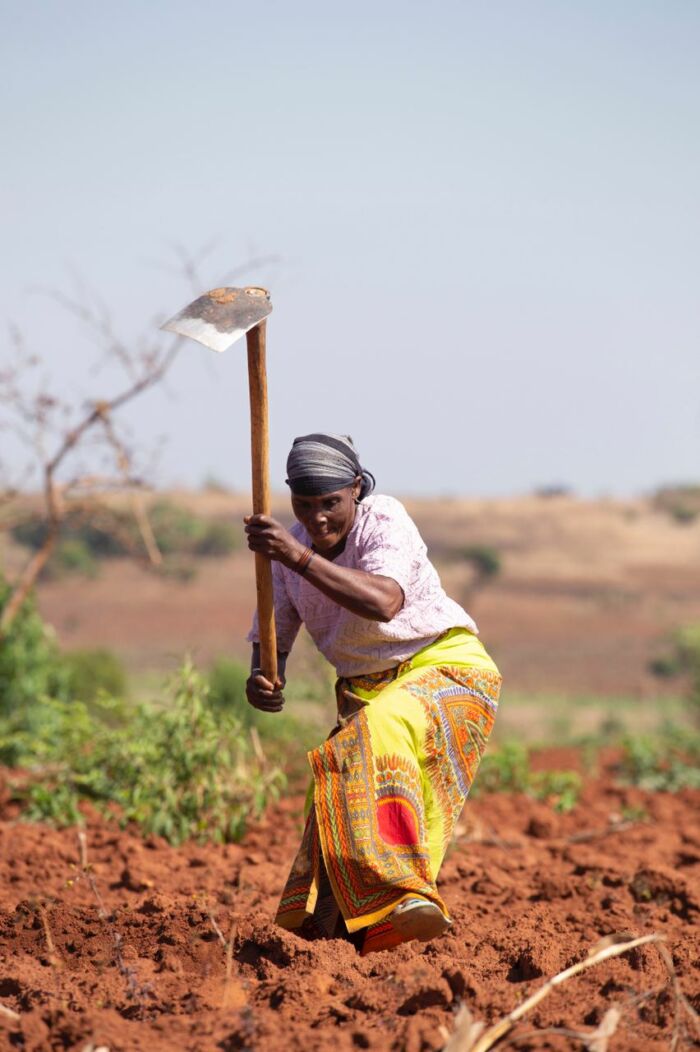
In the longer term, climate change is a threat to Jamia and other smallholder farmers in the region. In March and April 2019, Mozambique was hit by two tropical cyclones, Idai and Kenneth, just six weeks apart. They caused devastating flooding along the country’s central and northern coast. In the Niassa Province, where Jamia lives, climate change has brought drought, floods and soil erosion.
“Climate change has affected farming, but we’ve never stopped working the land. We adapt to the changes,” says Jamia.

Increasing income by selling on farmer markets
She is a member of an organisation for local farmers, União de Camponeses e Associações de Lichinga, UCA. Its purpose is to support the farmers so as to boost their productivity and food production, thereby improving their living conditions and fighting poverty. The UCA does this in part by spreading knowledge of how e.g. irrigation technology, fish farming and beekeeping contribute to sustainable agriculture, and by organising markets where the farmers can sell their produce. By selling their farm produce, Jamia earns between about €600 and €1,200 equivalent a year.
“We sell part of the harvest to earn an income, and save some to eat up until the next harvest,” Jamia explains.

A savings and loan group can help out in need
Through the UCA, Jamia is also a part of a savings and loan group with some of the other farmers in the village. Every month they pay a small amount into the savings and loan group, and then take turns taking out larger, saved amounts when they need to. In a crisis, members can borrow from the joint pot, and as the savings grow, so the members’ finances improve. Jamia uses the money she saves for major expenses and investments in her own
business. In the longer term, Jamia is planning to build a better house for the family, and possibly also to buy a motorbike so she can take her produce to market more easily.
“For a long time, I dreamed of having electricity in the house, and I have that now,” says Jamia.
“I think we’ll earn even more from our farm in future as we have a more stable foundation now,” she concludes.
